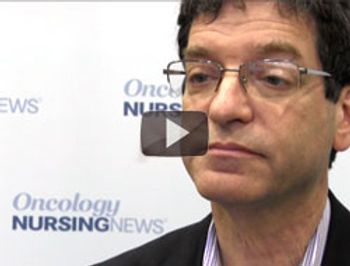
Lee Greenberger, PhD, chief scientific officer, The Leukemia & Lymphoma Society, discusses new agents that were recently approved for multiple myeloma.

Lee Greenberger, PhD, chief scientific officer, The Leukemia & Lymphoma Society, discusses new agents that were recently approved for multiple myeloma.
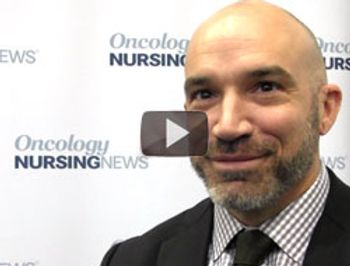
Jeffrey Jones, MD, MPH, assistant professor of Internal Medicine and section head of the Chronic Lymphocytic Leukemia (CLL) research program at Ohio State University Comprehensive Cancer Center, discusses how nurses can help patients comply with taking their oncology drugs.
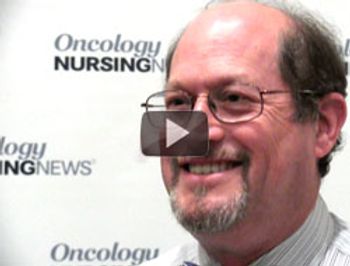
Michael Soulen, MD, a professor of radiology and surgery at the Abramson Cancer Center, University of Pennsylvania, discusses radioembolization to treat liver metastases in patients with neuroendocrine tumors (NETs) as well as the efficacy of embolization in treating NETs.
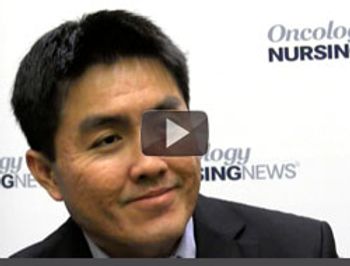
Roger Lo, MD, PhD, UCLA Jonsson Comprehensive Cancer Center, discusses the evolution of metastatic melanoma during therapy.
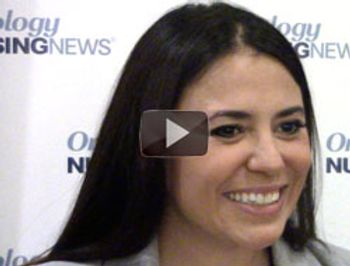
Jennifer Montes, MD, New York University Medical Center, discusses the role of nurses in treating patients with breast cancer.
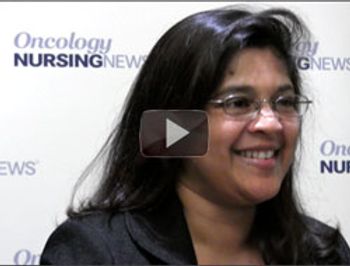
Mabel Ryder, MD, endocrinologist and medical oncologist, Mayo Clinic, discusses targeting the tumor microenvironment in thyroid cancer.Â

Richard Joseph, MD, an oncologist at Mayo Clinic, discusses mucosal melanoma.
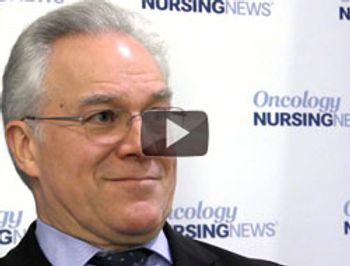
John Kirkwood, MD, Usher professor, Medicine, Dermatology and Translational Science, co-director, Melanoma and Skin Cancer Program, University of Pittsburgh, discusses training physicians on skin examinations for detecting melanoma.Â
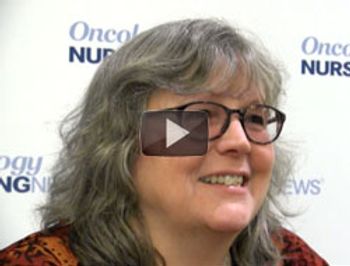
Sancy Leachman, MD, PhD, professor and chair, Department of Dermatology, director, Melanoma Research Program, Knight Cancer Institute, Oregon Health & Science University, discusses the mobile app Mole Mapper, which allows patients to measure and monitor their moles for melanoma.

Anita Nirenberg, PhD, RN, AOCNP, PNP-BC, FAAN, a professor of clinical nursing and associate director for Nurse Practitioner Specialties at Hunter-Bellevue School of Nursing, discusses pediatric oncology nursing.
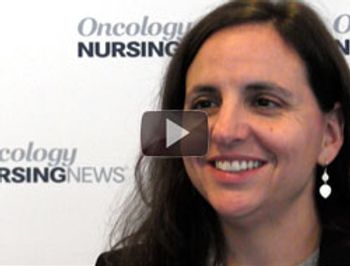
Jennifer Temel, MD, clinical director of thoracic oncology at Massachusetts General Hospital, discusses screening for pain and other cancer-related symptoms.
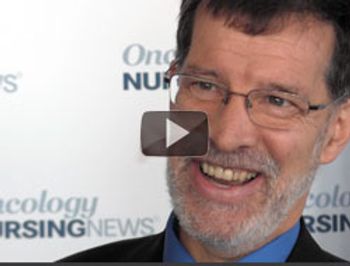
Charles Loprinzi, MD, Giant of Cancer Care: Supportive/Palliative Care, Mayo Clinic, discusses potential treatments for chemotherapy-induced peripheral neuropathy (CIPN).
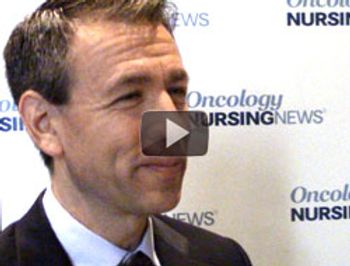
Aaron Spitz, MD, Orange County Urology Associates, discusses how telemedicine is expanding nurses' roles and responsibilities in caring for patients.
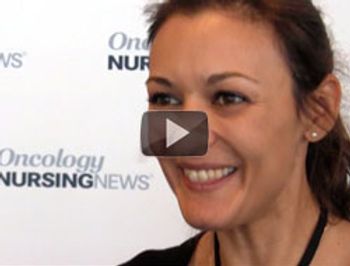
Kathrin Milbury, PhD, assistant professor of Integrative Medicine Research at The University of Texas MD Anderson Cancer Center, discusses caregiver burden in spouses of patients with lung cancer.
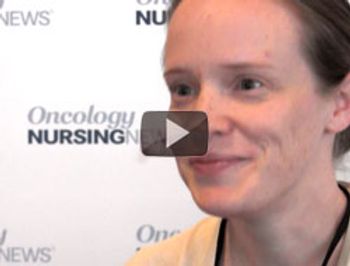
Carolyn Lefkowits, MD, MPH, MS, assistant professor, University of Colorado Denver, discusses patients' needs for palliative care in gynecologic oncology.Â
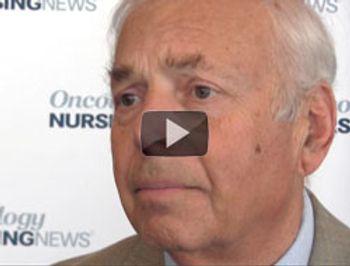
Rudolph Navari, MD, PhD, professor of Medicine at Indiana University School of Medicine -South Bend, discusses traditional antiemetic treatment for chemotherapy-induced nausea and vomiting (CINV).
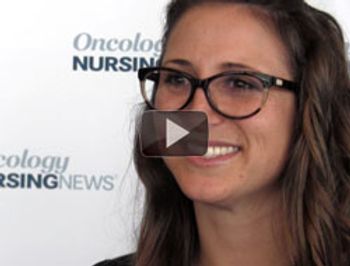
Alison Morris, RN, OCN, a Hematology/Oncology nurse practitioner at Stanford Health Care, discusses screening patients with cancer for emotional and physical distress as well as developing a nurse-led algorithm to categorize distress.
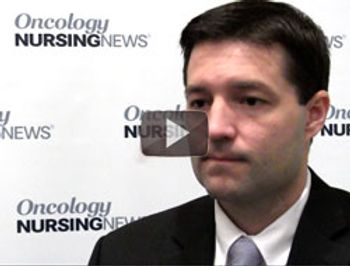
Brian Untch, MD, assistant member, Department of Surgery, Gastric and Mixed Tumor Service, Head and Neck Service, Memorial Sloan Kettering Cancer Center, discusses the watchful waiting approach for patients with neuroendocrine tumors (NETs).
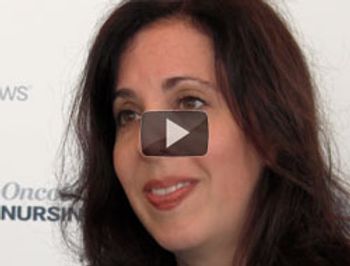
Lara Traeger, PhD, psychologist at Massachusetts General Hospital and assistant professor at Harvard Medical School, discusses challenges in studying burnout among nurses.
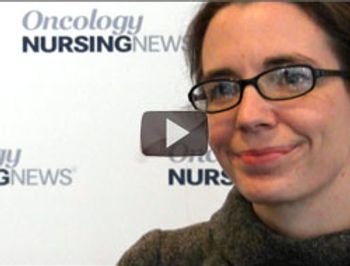
Amelie Harle, MD, PhD, an oncologist at the Christie Hospital in Manchester, United Kingdom, discusses future tests to determine the efficacy of aprepitant (Emend) in reducing cough in patients with lung cancer.
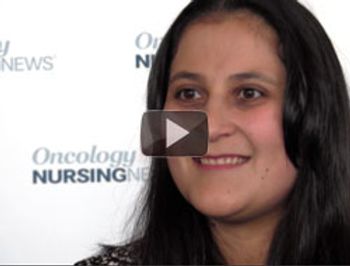
Areej El-Jawahri, MD, an oncologist at Massachusetts General Hospital, discusses potentially avoidable hospitalizations among patients older than age 60 with acute myeloid leukemia.
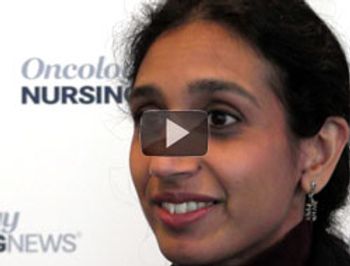
Kavita Dharmarajan, MD, MSc, assistant professor of radiation oncology and palliative medicine at the Icahn School of Medicine at Mount Sinai Hospital, discusses palliative radiation oncology referrals.

Kathrin Milbury, PhD, assistant professor of Integrative Medicine Research at The University of Texas MD Anderson Cancer Center, discusses the concept of protective buffering.
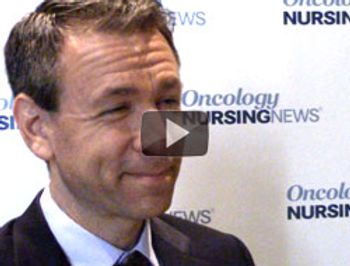
Aaron Spitz, MD, Orange County Urology Associates, discusses the role of nurses in telemedicine.
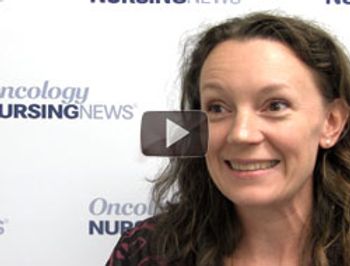
Kim Mooney-Doyle, PhD, CPNP-AC, University of Pennsylvania School of Nursing, discusses siblings of children with cancer in the context of pediatric palliative care.
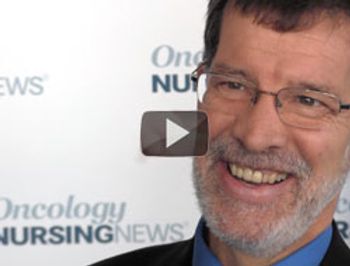
Charles Loprinzi, MD, Mayo Clinic, discusses managing chemotherapy-induced peripheral neuropathy in adult patients with cancer.
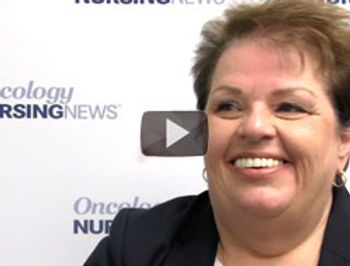
Anita Nirenberg, PhD, RN, AOCNP, PNP-BC, FAAN, a professor of clinical nursing and associate director for Nurse Practitioner Specialties at Hunter-Bellevue School of Nursing, discusses how nurses should approach patients newly diagnosed with cancer.

Janet Deatrick, PhD, RN, FAAN, University of Pennsylvania School of Nursing, discusses neurocognitive late effects among survivors of childhood brain tumors (CBTs).

Elizabeth Cruz, RN, Memorial Sloan Kettering Cancer Center, discusses differentiating symptoms of neuroendocrine tumors (NETs) from secondary conditions.

Michael Soulen, MD, a professor of radiology and surgery at the Abramson Cancer Center, University of Pennsylvania, discusses chemoembolization to treat liver metastases in patients with neuroendocrine tumors (NETs).